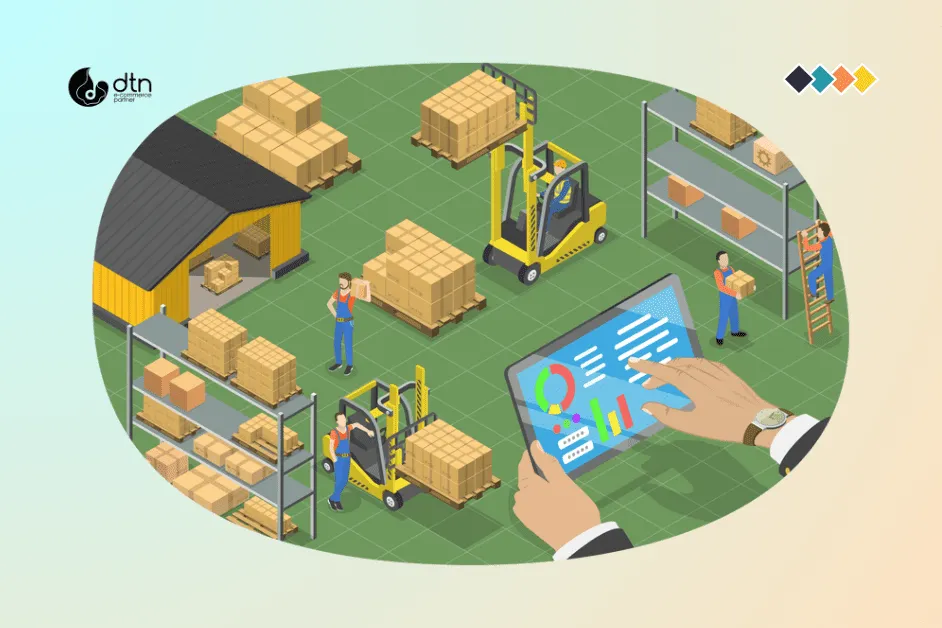Magento is a popular e-commerce platform that offers a wide range of features and functionality. However, Magento does not include built-in ERP (Enterprise Resource Planning) capabilities. This can be a limitation for businesses that need to manage their inventory, orders, and other business processes in a more comprehensive way.
There are a number of Magento ERP solutions available that can help businesses overcome this limitation. These solutions integrate with Magento to provide businesses with the functionality they need to manage their business processes more effectively.
In this blog post, we will discuss the benefits of using a Magento ERP solution and provide a comprehensive guide to the different solutions available.
Table of Contents
Benefits of Using a Magento ERP Solution
There are a number of benefits to using a Magento ERP solution, including:
- Improved inventory management: Magento ERP solutions can help businesses track their inventory levels in real time. This can help businesses avoid stockouts and ensure that they always have the products they need in stock.
- Increased order fulfillment efficiency: Magento ERP solutions can help businesses automate their order fulfillment process. This can reduce the time it takes to fulfill orders and improve customer satisfaction.
- Improved customer service: Magento ERP solutions can provide businesses with a centralized view of their customer data. This practice can assist businesses in delivering improved customer service and resolving customer issues with greater speed.
- Reduced costs: Magento ERP solutions can help businesses reduce their costs by automating their business processes. This can liberate time and resources that can then be directed towards other aspects of the business.

Guide to Magento ERP Solutions
There are a number of different Magento ERP solutions available. Each solution has its own unique features and functionality. The best solution for a particular business will depend on the specific needs of the business.
Some of the most popular Magento ERP solutions include:
- Acumatica: Acumatica is a cloud-based ERP solution that offers a wide range of features and functionality. Acumatica integrates with Magento to provide businesses with a comprehensive solution for managing their e-commerce operations.
- Microsoft Dynamics 365: Microsoft Dynamics 365 is a cloud-based ERP solution that offers a wide range of features and functionality. Microsoft Dynamics 365 integrates with Magento to provide businesses with a comprehensive solution for managing their e-commerce operations.
- NetSuite: NetSuite is a cloud-based ERP solution that offers a wide range of features and functionality. NetSuite integrates with Magento to provide businesses with a comprehensive solution for managing their e-commerce operations.
- SAP Business One: SAP Business One is an on-premise ERP solution that offers a wide range of features and functionality. SAP Business One integrates with Magento to provide businesses with a comprehensive solution for managing their e-commerce operations.

Conclusion
Magento ERP solutions can provide businesses with a number of benefits, including improved inventory management, increased order fulfillment efficiency, improved customer service, and reduced costs. There are a number of different Magento ERP solutions available, so businesses should carefully consider their specific needs before choosing a solution.
Frequently Asked Questions
We’ve compiled a list of answers to common questions.
What are some key factors to consider when choosing a Magento ERP solution for a business?
When choosing a Magento ERP solution, it’s important to consider factors such as the specific needs and requirements of the business, the scalability and flexibility of the solution, integration capabilities with Magento and other systems, ease of use, support and maintenance options, and total cost of ownership. Businesses should also consider factors such as industry-specific functionality, regulatory compliance, and future growth plans when evaluating Magento ERP solutions.
How do Magento ERP solutions integrate with the Magento platform?
Magento ERP solutions typically integrate with the Magento platform through APIs (Application Programming Interfaces) or connectors. These integrations allow data to be synchronized between Magento and the ERP system in real time, enabling businesses to manage their e-commerce operations more effectively. Integration capabilities may include synchronization of product data, inventory levels, order information, customer data, pricing and promotions, shipping and fulfillment details, and more.
Can businesses customize Magento ERP solutions to meet their specific needs?
Yes, many Magento ERP solutions offer customization options that allow businesses to tailor the system to their specific needs and requirements. This may include customizing workflows, adding or modifying fields and data elements, creating custom reports and dashboards, integrating with third-party systems and services, and more. Businesses can work with their ERP provider or a third-party developer to implement customizations that align with their unique business processes and objectives.
What ongoing support and maintenance options are available for Magento ERP solutions?
Many Magento ERP providers offer ongoing support and maintenance options to help businesses ensure the continued success and performance of their ERP system. These options may include regular software updates and patches, technical support and troubleshooting assistance, access to knowledge bases and online resources, training and education programs, and more. Businesses should carefully evaluate the support and maintenance options offered by ERP providers and choose a provider that can meet their specific needs and requirements for ongoing support and maintenance.



